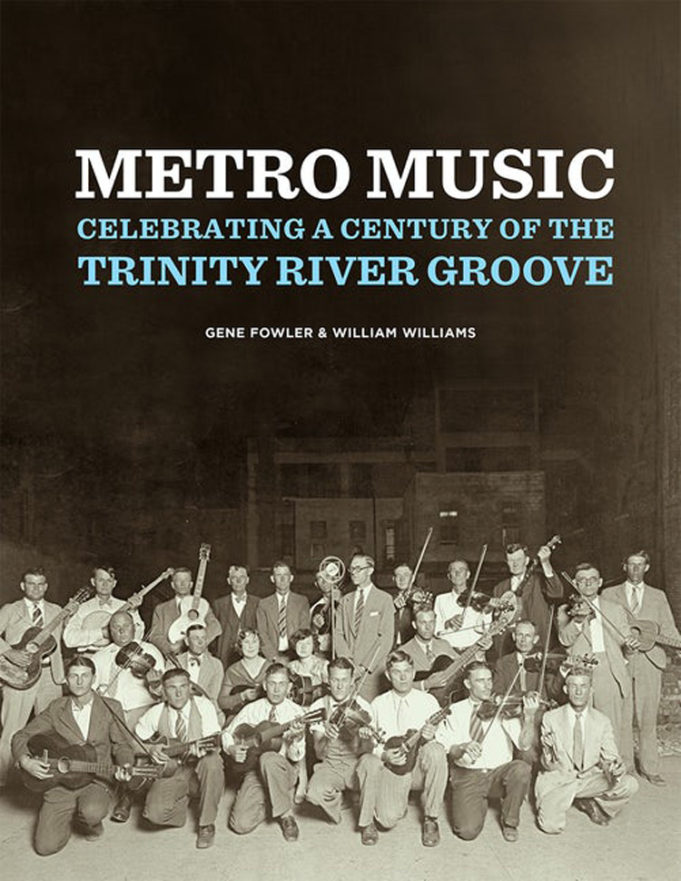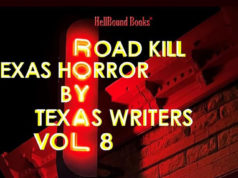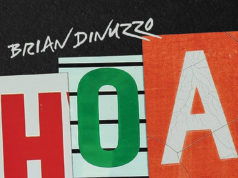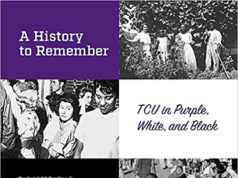While some early-20th-century North Texas singers and musicians were fortunate to gain a modicum of fame through airtime on radio shows, most dance band members, fiddlers, and singers were content to drum up a living gigging in dance halls and other music-friendly venues.
Those early tales (and more recent music history) are compiled in TCU Press’ newly released Metro Music: Celebrating a Century of the Trinity River Groove. The book highlights the musicians and bands that shaped and defined local music throughout much of the 20th century. Largely unpublished photos tell much of that story, and a rightful share of the book’s 270 pages are saved for influential, or simply interesting, Fort Worth musicians.
The opening chapter, “No Home Will Seem Perfect without a Guitar, Mandolin, or Banjo,” pays tribute to the instruments and people who settled in North Texas in the mid-to-late 19th century. Guitars, banjos, and violins (colloquially known as the “devil’s box”) were mainstays of musical performances of the time, according to the authors. The chapter isn’t without humorous stories. A fiddle contest held in Fort Worth in 1901 included awards for “oldest, ugliest, baldest, and whitest-hair” fiddler.
The chapter “Horse Rhythm” recounts some of the earliest-known balladeers who brought songs of lonely trail rides into the homes of America’s growing urban population. In 1933, WBAP featured the “official singing cowboy” of the Old Trail Drivers Association through a show called Jules Verne Allen’s Cowhands that played tales from the Old West and cowboy ballads.
“Many of the musicians who sparked the Austin blues revival of the early 1970s drifted down to the capital city from Dallas and Fort Worth,” reads part of Chapter 3. Fort Worthian Lou Ann Barton was one such Austin transplant. An Austin Chronicle writer described her as a “sassy Fort Worth shouter who cut her teeth playing Jacksboro Highway juke joints.”
The story of Bob Wills and the Light Crust Doughboys fills Chapter 4. The authors acknowledge the ongoing debate over whether Wills or Milton Brown created the blend of jazz, fiddle, folk, and Dixieland influences known as Western Swing. Quoting a biography of Wills, the authors of Metro Music describe how this young fiddle player from Turkey, Texas, headed to Fort Worth in 1929 to find work. Wills met Brown in 1929, and the two formed a quartet that quickly gained the sponsorship of Light Crust Flour. The sales manager behind the sponsorship initially regretted the partnership, based on his dislike of Wills’ “hillbilly” music, but the businessman was persuaded to keep the Light Crust Dough Boys on after sales of his flour brand boomed.
Articles on Fort Worth music have traditionally given little to no mention of the influence of Mexico and Tejano culture on local musicians. “Metro Musica” opens by quoting one historian’s perspective that Fort Worth’s early barrios swelled with musical styles like polkas, mariachi, bolero, danzone, cumbia, and Tejano. Nicho Saenz, father to local Latin music stalwarts Leo and Carlos Saenz, moved from his childhood ranch in the Rio Grande Valley to Fort Worth in 1949. Latin Express, which performs jazz, rock, Tex-Mex, country, and blues to this day, was formed in 1975 from eight members of the Saenz family.
Local jazz pianist Johnny Case, who still performs at Lili’s Bistro on the Near Southside, is allotted a generous section that explores his career before and after his 28-year stint as house pianist at the defunct Cultural District restaurant Sardines Ristorante Italiano.
Any survey of the history of a North Texas city would be incomplete without an acknowledgment of the strong historic ties that Dallas, Denton, and Fort Worth share. Metro Music dutifully describes influential local musicians while allowing space for an expansive examination of the events and people (big and small) who defined North Texas music over the past century. Each chapter is full of prose that is colorful and full of humor — a perfect read for the music cognoscenti or anyone interested in learning about our regions’ history from a musician’s perspective.
Metro Music: Celebrating a Century of the Trinity River Groove
By Gene Fowler and William Williams
TCU Press
$36.95
270 pps.












